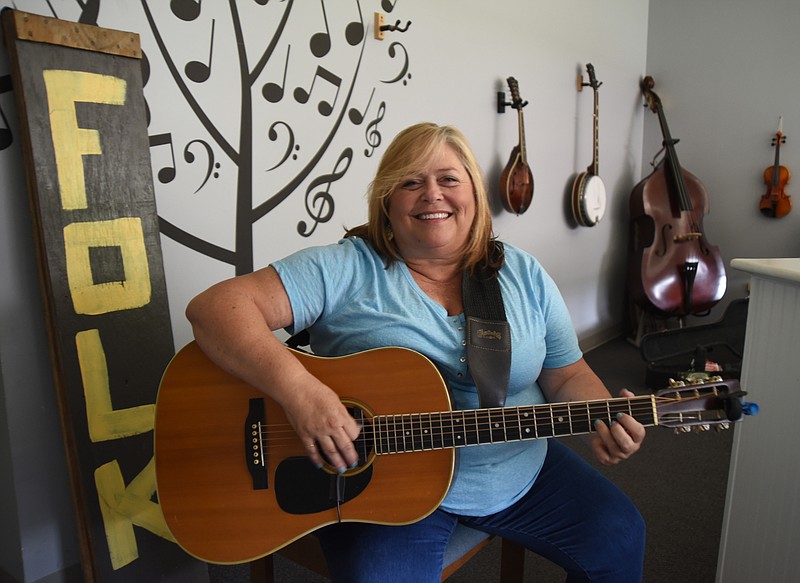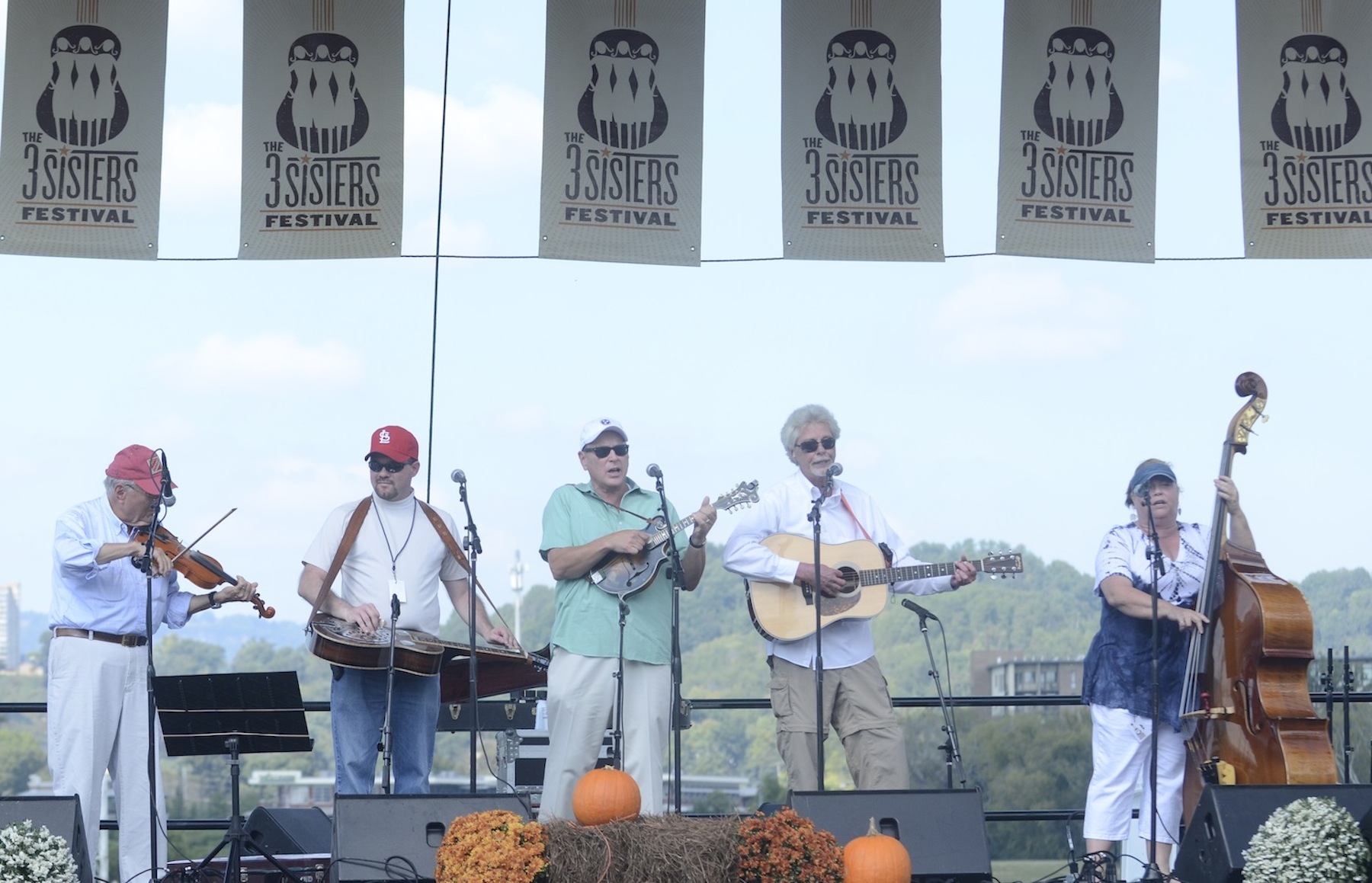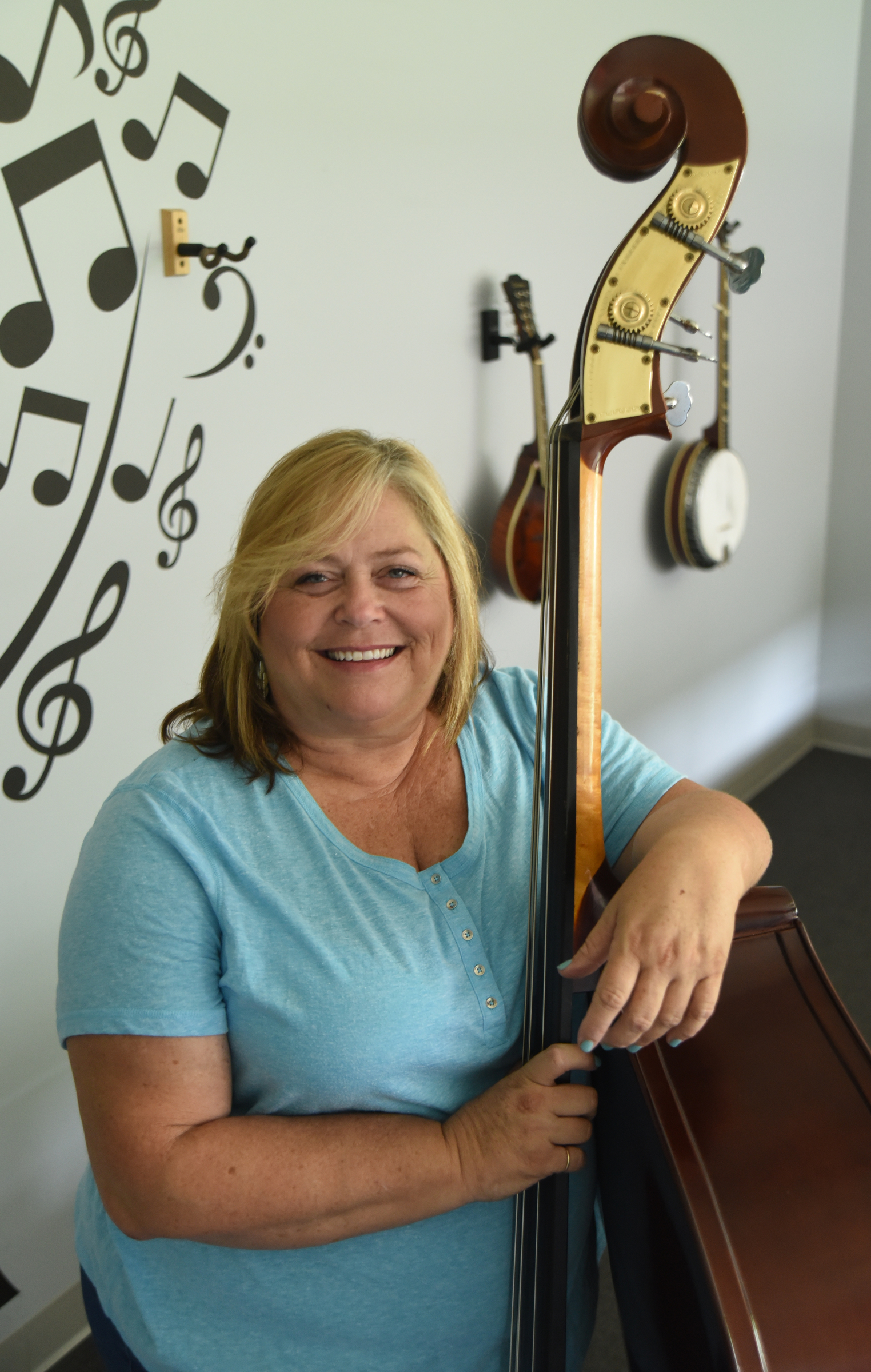I'm excited to be in a position to make a positive difference to something that really matters. I think this Folk School is important to Chattanooga, and it needs to become even more so.
Communal dances. Outdoor concerts. Traditional crafting classes. A 50-seat performance venue. An overflowing student roster.
This is the idyllic vision of the Folk School of Chattanooga that Laura Walker is holding fast to as the nonprofit's newly appointed executive director. But to see that potential realized, she says, they will probably have to move for the fifth time in six years.
"The school isn't going to grow here, no matter how wonderful the place is," Walker says, gesturing around the all-but-bare rectangle of an office in the Four Squares Business Center at the base of Signal Mountain off Mountain Creek Road.
Learn more
For more information about the Folk School of Chattanooga, visit www.chattanoogafolk.com or www.facebook.com/chattanoogafolk.
Sign up
The Folk School of Chattanooga's summer semester of six-week group music classes started on Monday, June 29, and will continue through Aug. 9. Prices are $110 per student. A full schedule is available at www.chattanoogafolk.com/new-group-classes.
The Folk School has been based out of this suite of carpeted, white-walled rooms since June 2013, when it was evicted one year into a three-year lease at a renovated glass-blowing facility on Rossville Avenue. Prior to that, the school was based out of locations on Dayton Boulevard in Red Bank and Forest Avenue in North Chattanooga.
The current site, which is five miles from downtown and next door to an office for an Aflac insurance agent, is "just out of the central pocket," Walker says. "It's like 'Field of Dreams.' We built it, but until you get people to come, it's not going to be successful for you."
For more than 20 years, Walker, 54, has been the lead singer in storied local bluegrass band The Dismembered Tennesseans and has led various singing classes at the Folk School. She accepted the role as executive director - the school's only paid position - in April after interim director and champion fiddler John Boulware decided to refocus his efforts on playing and teaching.
She comes into the position at a time when even long-time supporters say the school is facing significant challenges due to dwindling membership and money problems.
"It was at the point where it was dying on the vine," says Fletcher Bright, a local fiddler and business magnate who has served as an unofficial adviser and financial backer to the school since its incorporation in 2009. "It was running out of money, and people didn't see any need to back them very much because there wasn't any big impetus going."
When Boulware expressed his desire to return to teaching, Bright - founder of The Dismembered Tennesseans - suggested hiring Walker, who had expressed initial interest in the position in 2014 after the departure of previous executive director Dean Arnold.
"She's full of piss and vinegar. She's motivated real hard and working real hard with it," he says. "My fingers are crossed, but this match might be made in heaven. I think this might be what we needed. I'm very optimistic."
What the school needs - and what Walker provides - Bright says, is someone who can bring passion to the helm and set about mending fences with its frayed network of backers. To help feed the kitty, Bright says he has offered an initial financial contribution.
Despite her diminutive frame, Walker's gusto is almost overpowering at times. She seems uncomfortable remaining seated, making up for her chair's immobility by sweeping her outstretched arms in broad arcs and punctuating particularly emphatic points by rapping her fists on a nearby desk.
Her boisterous laugh is set on a hair trigger, and her words come out in a rush and at a volume that suggests she's trying to reach the hard-of-hearing occupants in some imagined back row. But when she talks about the school, about the challenges it faces and the reason she wants to save it, her sentences come at a more measured pace and in an almost conspiratorial tone.
"I believe in the Folk School of Chattanooga," she says. "I think Chattanooga needs something like this, and I don't want it to die. I want it to be like a center of the community.
"We hope to fill it full of music again. We want to become a thriving part of the music community that Chattanooga has. Chattanooga really does have an exciting music scene, and we can play a pivotal role in that."
I believe in the Folk School of Chattanooga. I think Chattanooga needs something like this, and I don't want it to die. I want it to be like a center of the community.
Leading up to the start of its summer semester of group classes, which start this week, the school's roster included about 50 students. Walker says she'd like to see that number increase and to make that happen, being in a more central location is paramount.
"I'd like to move this month," she says, minutes after stepping away to answer a call about a prospective building in St. Elmo.
Because a relocation is as inarguable as it is inevitable, her focus now is on the grand plan after the move is complete.
Citing the example of similar institutions such as the John C. Campbell Folk School outside Murphy, N.C., Walker says she would like to broaden the school's offerings from its ironclad focus on musical instruction to encompass folk arts such as knitting, basket weaving, furniture caning, glass blowing and jewelry making.
"[The folk art community] is something I'm just getting plugged into and hearing a lot of interest in," she says. "If you can get someone in to learn to work on a quilt, maybe they'll hear music in the background and think they'd like to try their hand at an instrument. It's gateway crafting. We're trying to draw you into our world so it can become your world."
Walker says she has been busy early on with assimilating her newfound responsibilities, which include establishing class schedules, overseeing daily operations, fundraising and managing events. Her most recent emphasis, she says, has been on re-establishing lapsed connections with past financial backers.
"One of my first orders of business was setting about seeing if I could repair those relationships and get them working again," she says, citing a productive recent meeting with the McKenzie Foundation.
She also has reached out to the Lyndhurst Foundation, which has yet to offer its support, but she say she's convinced she can convince its board to support the school again.
"We have an avenue of communication open that previously had been shut down. I'm hopeful. I'm going to get that back," she laughs. "They can't tell me no; I'll wear them down."
And that kind of determination and optimism is just the kind of life line the school needs right now, says Boulware, who is once more teaching students in a compact room up the hallway from Walker's office.
"We need a director who is passionate about running the school," he says. "She [Walker] never met a stranger before. The ability to go out there and meet to people and talk to people and exude the attitude of the Folk School is something she's really great at."
Contact Casey Phillips at cphillips@timesfreepress.com or 423-757-6205. Follow him on Twitter at @PhillipsCTFP.


